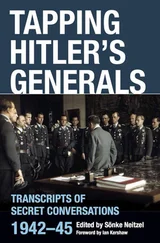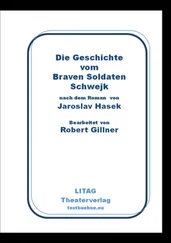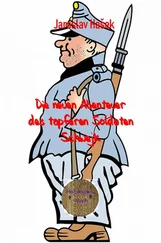The situation is different with explicitly adopted roles, for instance, those we take on in the course of our careers. They bring along new sets of responsibilities to be learned. If a person who has been studying mathematics gets a job at an insurance company, his set of responsibilities changes dramatically, affecting norms of attire, working day, communication, and what that person considers important and insignificant. Other fundamental transitions happen when people become mothers or fathers, or when a pensioner retires from the working world. Furthermore we can observe radical role changes when people enter “total institutions” {17} 17 Erving Goffman, Asyle: Über die Situation psychiatrischer Patienten und anderer Insassen (Frankfurt/Main: Suhrkamp, 1973).
such as a cloister, a prison, or—as is particularly significant for the present context—the military. Such institutions—say, for instance, the Wehrmacht or the SS—claim total dispensation over the individual. Individuals are given uniforms and special haircuts and thereby lose control over the enactment of their own identities. They no longer do with their time as they see fit but are constantly subjected to external compulsion, drills, harassment, and draconian punishment for violating rules. Total institutions function as hermetically sealed worlds of a special sort, directed toward producing a finished result. Soldiers do not just learn how to use weapons and negotiate various types of terrain. They are taught to obey, to subjugate themselves to hierarchy, and to act on command at a moment’s notice. Total institutions establish a specific form of socialization, in which group norms and responsibilities have far more influence on individuals than under normal social conditions. The group to which one belongs may not be freely selected, but it is the only group to which one can relate. One is part of the group because one was assigned to it. {18} 18 Rolf Schörken recalled of his experiences as a sixteen-year-old assistant antiaircraft gunner: “In the school classes of this age group, pupils who displayed a mixture of intelligence, sporting prowess and social skills normally had the most say…. Now, the antithetical type of pupil took control: those who had grown more quickly and were simply more physically powerful than the others. Intelligence of the sort promoted in school, to say nothing of being educated, almost became negative traits and were punished with ridicule and scorn. Anyone who dared read a serious book or listened to serious music was a lost cause…. These new shapers of opinion create a pressure, indeed a compulsion to conform that knew no corrective limits. The fact that we were all part of the Wehrmacht did little to counteract this. In reality, being connected to the Wehrmacht was what enabled people to completely let themselves go in battle.” See Schörken, Luftwaffenhelfer und Drittes Reich .
A total institution initially attempts to rob initiates of all forms of self-control. Only after the “initiation” or “apprenticeship” has been completed does a measure of freedom and a spectrum for possible behavior open up. This phenomenon is extreme even in peacetime, and it is the more so during war, when acts of battle are no longer simulation, but everyday reality, and one’s own survival may well depend on the smooth functioning of one’s unit. At that point, the total institution becomes a total group, allowing only specific spectrums of action precisely defined by rank and command structure. {19} 19 Harald Welzer, “Jeder die Gestapo des anderen: Über totale Gruppen,” in Stadt der Sklaven/Slave City, Museum Folkwang, ed. (Essen, 2008), pp. 177–90.
In comparison with civilian roles of every sort, the frame of reference of soldiers at war is characterized by the lack of alternatives. One of the soldiers, whose conversations with a comrade were secretly recorded, put it so: “We’re like a machine gun. A weapon for waging war.” {20} 20 Room Conversation, Schlottig–Wertenbruch, 10 August 1944, NARA, RG 165, Entry 179, Box 540.
In decisions of what, when, and with whom, a soldier’s behavior is not subject to his own perception, interpretation, and decision making. The leeway with which a command can be interpreted according to one’s own estimation and abilities is extremely small. Depending on the circumstances, the significance of roles within frames of reference varies considerably. Under the pluralistic conditions of civilian life, it can be quite negligible. Under the conditions of war or other extreme situations, though, the significance can be total.
Parts of various civilian roles can also be transferred to the military context, where they become matters of life or death. A harmless action like transferring files can suddenly become murderous, if the context changes. As early as 1962, in his seminal work The Destruction of the European Jews, Holocaust historian Raul Hilberg underscored the negative potential of people employing civilian skills for homicidal purposes:
Every policeman charged with keeping order could become a guard in a ghetto or for a rail transport. Every lawyer at the Main Office for Imperial Security was a candidate for taking over a task force; every finance specialist at the Department of Economic Administration was seen as a natural choice for serving in a concentration camp. In other words, all necessary operations were carried out using the personnel that was available at the time. Wherever one chooses to draw the border with active participation, the machinery of annihilation represented an impressive cross-section of the German populace. {21} 21 Raul Hilberg, Die Vernichtung der europäischen Juden (Frankfurt/Main: Fischer, 1990), p. 1080.
Applied to war, that would mean: every mechanic could repair bombers whose deadly payloads killed thousands of people; every butcher could, as a member of a procurement enterprise, be complicit in the plundering of occupied areas. During World War II, Lufthansa pilots flew long-range sorties in their Fw 200s not to transport passengers, but to sink British merchant ships in the Atlantic. Yet because their activity in and of itself didn’t change, those who played these roles rarely saw reason to engage in moral reflection or to refuse to do their jobs. Their basic activity remained the same.
INTERPRETIVE PARADIGM: WAR IS WAR
Specific interpretive paradigms are tightly connected with the sets of demands that accompany every role. Doctors see an illness differently than do patients, just as perpetrators view a crime differently than do victims. The paradigms that direct these interpretations are, in a sense, mini frames of reference. Every interpretive paradigm, of course, includes an entire universe of alternative interpretations and implies nonknowledge. That is disadvantageous in situations so new that previous experience does more to hinder than to help our ability to deal with them. {22} 22 Karl E. Weick and Kathleen M. Sutcliffe, Das Unerwartete managen: Wie Unternehmen aus Extremsituationen lernen (Stuttgart: Schaeffer-Poescher, 2003).
Paradigms are effective in familiar contexts since they remove the need to engage in complex considerations and calculations. One knows what one is dealing with and what the right recipe is for solving a problem. As predetermined, routinized frames for ordering what is happening at a given moment, interpretive paradigms structure our lives to an extraordinarily high degree. They range from stereotypes (“Jews are all…”) to entire cosmologies (“God will not permit Germany’s demise”), and are both historically and culturally very specific. German soldiers in World War II typecast their enemies according to different criteria and characteristics than soldiers in the Vietnam War did, but the procedure and function of the typecasting are identical.
Читать дальше












